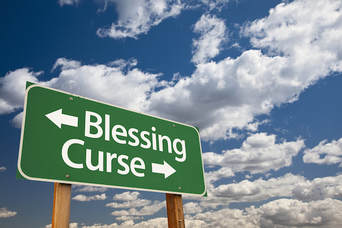 On this beautiful first day of September, we are full of both blessing and challenge. The sky is blue and our eyes are full of images-water devastating the Gulf coast of our country. Children have tumbled more or less happily back into school, exciting ministry plans are bubbling up all over MidMaine and we are mourning the imminent loss of our beloved colleague in ministry, Connie to cancer. Life tumbles it all together. In an interview last week, Canadian detective author Louise Penny recommended presidents read Marcus Aurelius’ Meditations. It’s an ancient Roman secular equivalent to Jesus’ Sermon on the Mount with words for living a blessed life. Each of them, Marcus Aurelius and Jesus, was responding to crowds’ expectations, one as a general, surrounded by the demands of soldiers and devastation of war, the other as a rabbi, hemmed in by the sin sick, the diseased, the deformed, the hungry. The apostle Paul also offers words of blessing in the midst of challenge: Let love be genuine…….outdo one another in showing honor……. Rejoice in hope, be patient in suffering, persevere in prayer. Contribute to the needs of the saints; extend hospitality to strangers. Bless those who persecute you; bless and do not curse them. …….Do not repay anyone evil for evil….. No, "if your enemies are hungry, feed them; if they are thirsty, give them something to drink; for by doing this you will heap burning coals on their heads." Do not be overcome by evil, but overcome evil with good.-Romans 12:9-21 Paul’s humanity peaks through with the line “heap burning coals on their heads” while he’s trying to point to a better way. He and Jesus are both in conversation with crowds and with their tradition. They are answering songs that sing out the people’s heart felt cries when they’re up against challenges: Vindicate me, O LORD, for I have walked in my integrity, and I have trusted in the LORD without wavering….. I do not sit with the worthless, nor do I consort with hypocrites; I hate the company of evildoers, and will not sit with the wicked. -Psalm 26:1-8 I’m so glad that the Psalmist also sings: you set a table in the presence of my enemies. -Psalm 23 To hate is to reject. Paul, Aurelius, and Jesus all try to teach us how to live with honor and blessing, rejecting (hating) evil without rejecting (hating) each other. Jesus’ own humanity shows through under stress in this week’s gospel lectionary: From that time on, Jesus began to show his disciples that he must go to Jerusalem and undergo great suffering at the hands of the elders and chief priests and scribes, and be killed, and on the third day be raised. And Peter took him aside and began to rebuke him, saying, "God forbid it, Lord! This must never happen to you." But [Jesus] turned and said to Peter, "Get behind me, Satan! You are a stumbling block to me; for you are setting your mind not on divine things but on human things." - Matthew 16:21-28 Jesus, using brotherly language, not neighborly language, is aggravated at a close friend whose love tempts him to turn from the purpose God lays before him. He doesn’t literally think that Peter has become demonic, but their minds are not aligned and his choice of words startles beloved Peter into realizing that. It is not a conversation between strangers. Our national conversations are becoming muddled. When are we speaking to brothers and sisters? When are our words directed to neighbors…or to strangers? What hope has God embedded in these relationships? Do our words uncover that hope or bury it deep, distort or transform? While one singer evasively sings, I wash my hands in innocence, and go around your altar, O LORD –Psalm 26:6, Novelist, and Christian, Madelaine L’Engle writes of the path through pain and challenge in “Other Side of the Sun”: In this parched place of desolate wilderness, This war-torn, hate-split world, oh, who will bless Bless and redeem the blood-stained, tear-drenched ground So once again the healing sun will blaze, The small birds sing, the flowers be found, And lion and lamb in loving joy may graze? Who is there left the truth of love to guess? How shall we stand the violence of the sun? How hate redeem, how brother’s love confess? What will be left when wind and fire are done? Only on love’s terrible other side Is found the place where lion and lamb abide. What L’Engle calls the “other side of the sun” is seen where Life after Hate helps neo-Nazi’s out of their social chains and Ft. Smith neighbors reach across differences to bring forgiveness after vandalism. Going through life’s toughest moments of losing friends, rebuilding houses and hope, talking through differences brings us by God’s grace to a place where we can sing together a song of thanksgiving, and telling all your wondrous deeds. O LORD, I love the house in which you dwell, and the place where your glory abides.-Psalm 26: 7-8
0 Comments
|
Karen L MunsonA pastor and artist, I'm wondering while I'm wandering through God's marvelous creation. Archives
March 2020
Categories |
 RSS Feed
RSS Feed